Search Results
Showing results 261 to 280 of 540
Stack-o-Pennies Shop
Source Institutions
In this math activity, learners pretend there is a special store that lets you pay for toys by their height in pennies.
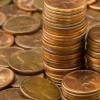
How Many Pennies?
Source Institutions
In this math activity, learners pretend there is a special store that lets you pay for toys by their weight in pennies.

Go with the Flow
Source Institutions
In this quick and easy activity and/or demonstration, learners use two empty soda cans to illustrate Bernoulli's principle.
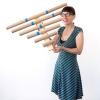
Pipes of Pan
Source Institutions
Create an instrument that you don't play--you just listen to it through tubes of various lengths.

DIY Weather Vane
Source Institutions
In this activity, learners will engineer their own weather vane. This activity includes step-by-step instructions with pictures and a "What's Happening?" section explaining how the activity worked.
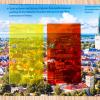
Color Table: Color your perception
Source Institutions
Look at pictures through different color filters and you'll see them in a new way. People have used color filters in beautiful photography or sending secret messages.
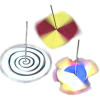
Spinning Tops
Source Institutions
Create your own spinning top, and explore color, shapes and spinning. This activity contains instructions for making your spinning top, and tips on how to design and decorate it.

Counting Craze
Source Institutions
In this activity, learners practice counting objects found on patterned wrapping paper or fabric.

Sumo
Source Institutions
In this version of a Sumo wrestling bout, players use mathematical skills to move their opponent's counter beyond the track and "out of the ring." Learners reveal playing cards and the player with the
Balance Challenge
Source Institutions
In this quick activity, learners take a balance challenge to measure their average balance time. As they collect data, they investigate how practice and repetition improve their balance time.
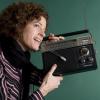
Radiohead
Source Institutions
When you teeth clatter, they make quite the racket disproportionately to how much they actually sound to someone else.

Eyedropper Hydrometer: Buoy your understanding of density
Source Institutions
Build a hydrometer (measures the density of a liquid) using a pipet or eyedropper.
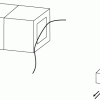
Physics in the Toy Room: Toppling Towers
Source Institutions
In this physics activity, learners use square blocks to explore how towers fall. Learners attach a piece of string to the side of a block and then construct a tall tower on top of this base block.
Glowing Tonic
Source Institutions
In this sunny day activity, learners compare how a cup of water and a cup of tonic water reflect or refract light in the sun.
Pour Some: Measure Serving Size
Source Institutions
Make snack time into measuring time and learn to read Nutrition Facts labels. Try this when you’re using “pourable” foods, such as cereal, yoghurt, or juice.

Burning Issues
Source Institutions
Learners use a candle to investigate the products of combustion. When a glass rod is held over a lit candle, the candle flame deposits carbon on the rod.
Narrow It Down: Asking Yes-No Questions
Source Institutions
In this activity, the learner asks yes-no questions to identify a secret object (similar to Twenty Questions). This game is easy to adapt for different ages and different kinds of contexts.

Chocolate (Sea Floor) Lava
Source Institutions
In this edible experiment, learners pour "Magic Shell" chocolate into a glass of cold water. They'll observe as pillow shaped structures form, which resemble lavas on the sea floor.

Constellation Viewer
Source Institutions
In this activity, learners will explore what a constellation is and make their own.

Make Your Own DNA
Source Institutions
Learners match puzzle pieces to outlines of a DNA strand. The puzzle pieces represent the four chemicals making up DNA base pairs: adenine, thymine, guanine, and cytosine.
